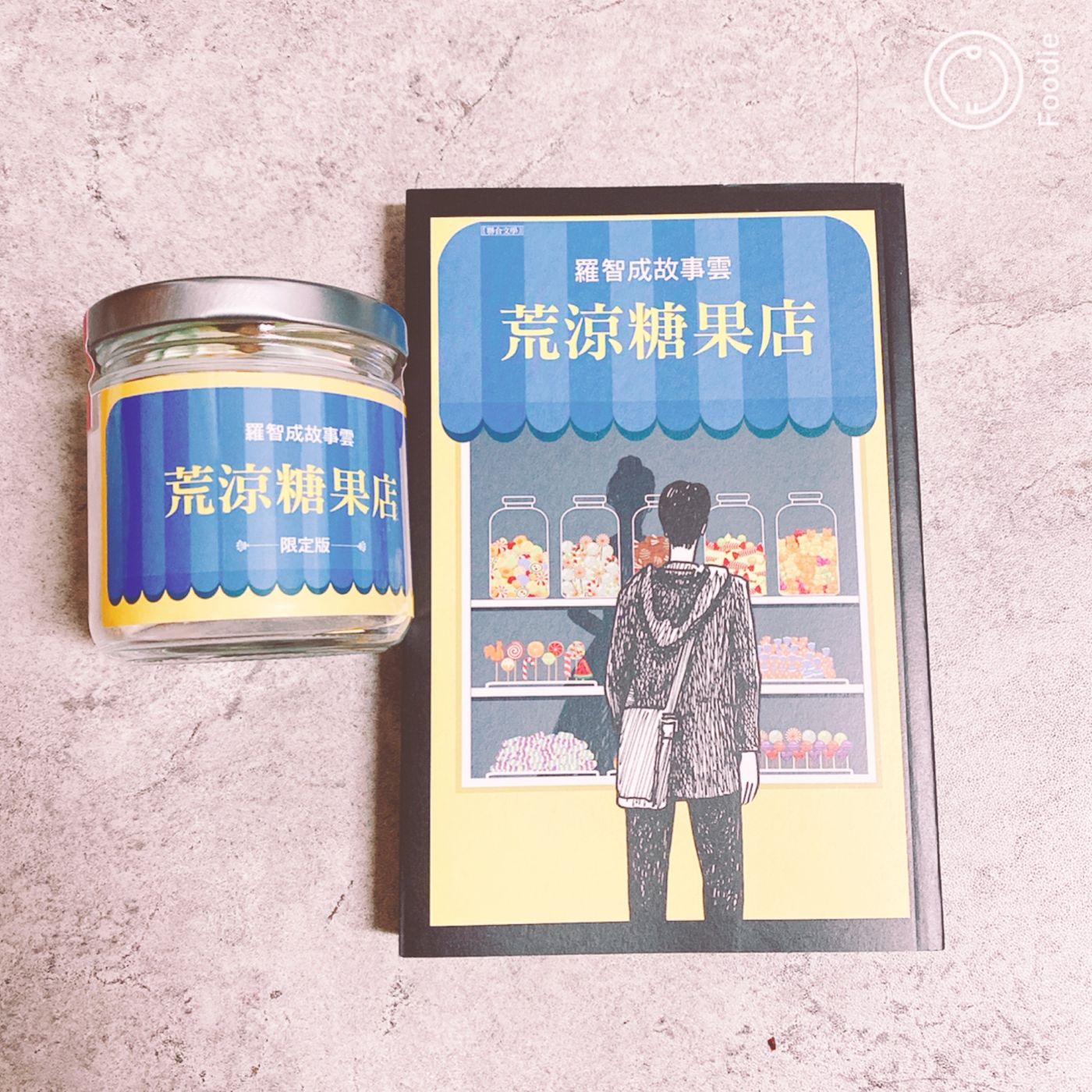
寫作者
Traveling on Paper: Story Cloud Let's Name Those Shimmers - Reading Luo Zhicheng's "Desolate Candy Store"

"Desolate Candy Shop" is a work of Luo Zhicheng's story cloud series. In the desolate wilderness at the end of 2020, there is a glimmer of hope that will come or go.
The book mentions: "In a place where life and death are too much, if there is a mysterious candy store, people will write off their original memories, or even replace them with new ones, whether the journey of death or rebirth is no longer a mystery. People are afraid?"
The entire poetry collection is not only a sequence of words and images, but also closer to the form of theater weaving. The linked verses provide readers with a vision of the imagination, which is what Heidegger said: "We do not only think in language, but in the direction of language."
"Desolate Candy Shop" uses language as a clue, pointing to the wonderful land in the readers' hearts with sweet and colorful along the way:
"Just imagine ⁄ imagine that you have a ⁄ tailored story ⁄ and I'm pre-positioned in it"
While performing in the Story Theater, the memory of the past is intertwined with the imagination of the future. In each reader's consciousness, a unique "fusion of horizons" is produced. Everyone has their own desolate story: "I have imagined a hundred times ⁄ The adventure in the candy store ⁄ how will it end ⁄ it may be beyond imagination ⁄ but "destined" is regrettable ⁄ you can raise a pterosaur ⁄ but can't rule its sky"
The poet consciously gives the reader the right to interpret, and the method is close to the method of postmodern film - boldly using the subjective initiative of the reader to make history produce more microscopic practical significance. When the reader has defined all the details, "like writing poetry / she speaks intoxicated / names all things with irreplaceable words / "naming" gives them a form / awakens their magic ".
In the process of reading, the reader uses his own background as the repertoire to act out a one-act stage play. As the poet said: "Our existence ⁄ will eventually be thinner than my memory ⁄ but the past no longer exists ⁄ all the present ⁄ the next moment ⁄ restores to my mind"
The arrangement of "Desolate Candy Shop" is also like a drama script. The poet arranges the space for the reader, which is an ancient city, a candy store, or a garden by the sea. In this "ultimate media", readers only need to feel, while doubting the authenticity of history/clues, personal emotional experience is the main line of the theater and the main axis of the story. As time, space and memory interact, we have a bias against the tradition (historicity) of existence, and bias constitutes our entire experience.
From the point of view of reception aesthetics, there are various gaps between the "original vision" of the text author's work and the "present vision" of the recipients who interpret the text. It not only empowers the reader, but also removes the ambiguity between the author of the text and the reader.
Luo Zhicheng mentioned in his postscript: "My only clear purpose is to create a special experience with words, to evoke similar memories of readers, and to explore the unique intimacy of poetry reading through fusion, suggestion and confusion."
"Time forgets too fast ⁄ and I forget too slowly ⁄ I will continue to care ⁄ continue to grow ⁄ until I forget each other with the world"
In "Desolate Candy Shop", only by throwing yourself into the wilderness can you name those strange and close shimmers in the dark night sky and weld your own galaxy.
Like my work?
Don't forget to support or like, so I know you are with me..
Comment…